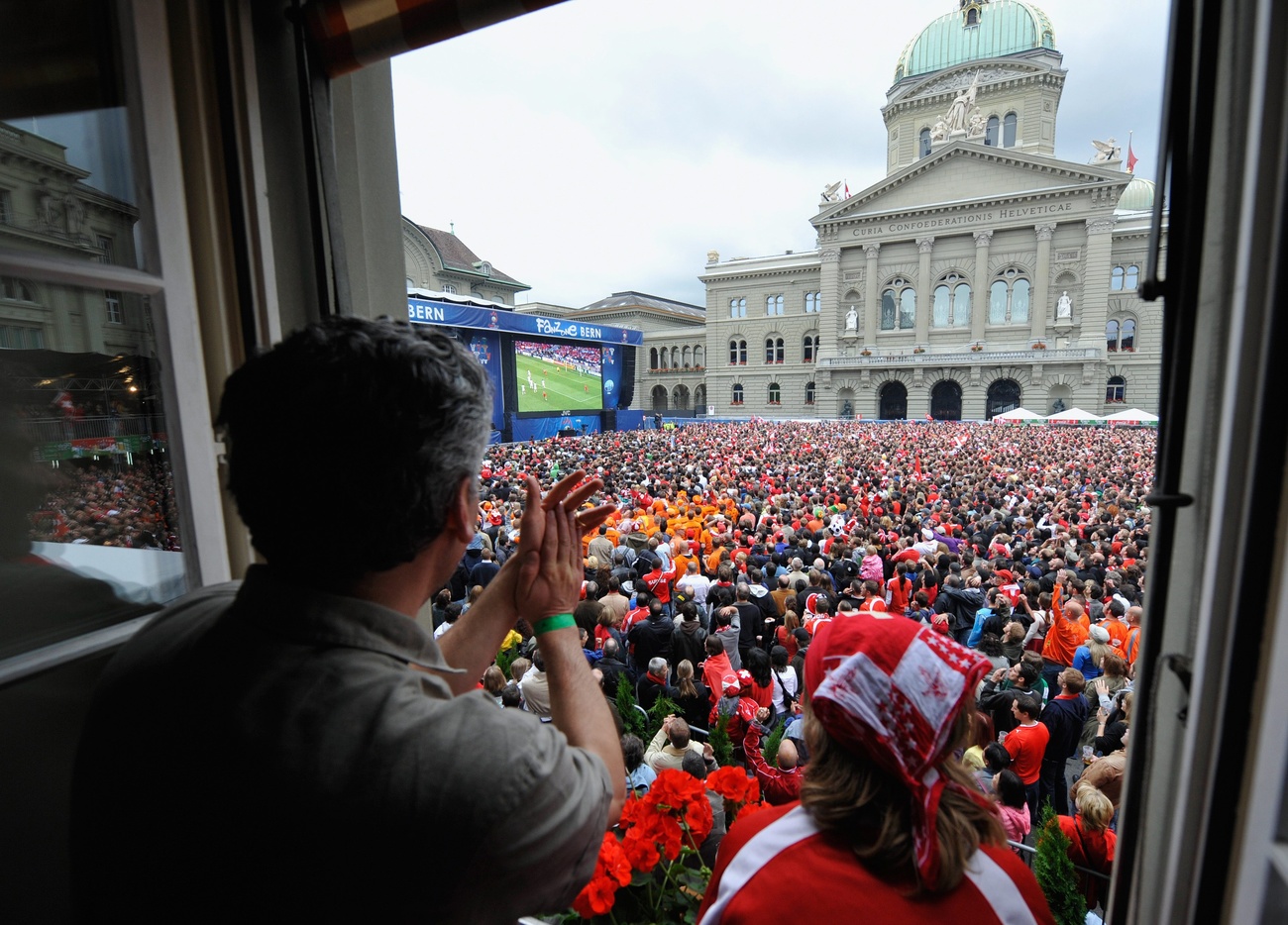
Switzerland to host Women’s Euro 2025

The country beat three rival bids to be named as the next host of the Women’s European Football Championship.
Switzerland won out over France, Poland, and a joint Nordic bid from Denmark, Finland, Norway and Sweden, UEFA’s executive board said in Lisbon on Tuesday.
It’s the first time that Switzerland will organise the tournament. It previously jointly hosted the men’s version of the championship in 2008, along with neighbouring Austria.
+ From the archive: the ups and downs of Euro 2008 in Switzerland
In a statement, president of the Swiss Football Association (SFA) Dominique Blan said it was a “historic day for Switzerland, the SFA and women’s football,” and the decision would “shape the development of women’s football at all levels.”
The SFA confirmed that the games will be played in the cities of Basel, Bern, Geneva, Lucerne, Sion, St Gallen, Thun and Zurich.
The tournament will have 16 teams playing 31 games over about three weeks in June-July 2025.
The previous European Championship was won by host nation England in 2022. That tournament, which had been postponed by a year due to Covid-19, had a projected global cumulative live viewership of 365 million people. A record crowd of 87,192 were at Wembley Stadium in London to watch the final between England and Germany.
Switzerland’s biggest stadium, St Jakob-Park in Basel, can fit around 38,000 fans.

In compliance with the JTI standards
More: SWI swissinfo.ch certified by the Journalism Trust Initiative


























You can find an overview of ongoing debates with our journalists here . Please join us!
If you want to start a conversation about a topic raised in this article or want to report factual errors, email us at english@swissinfo.ch.